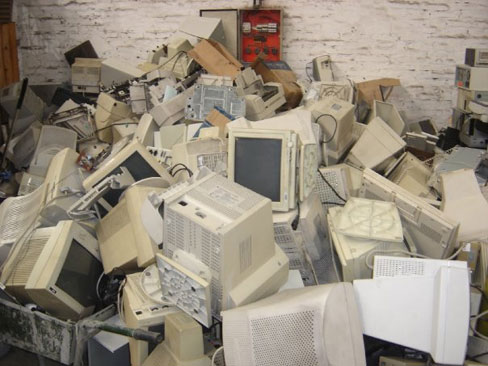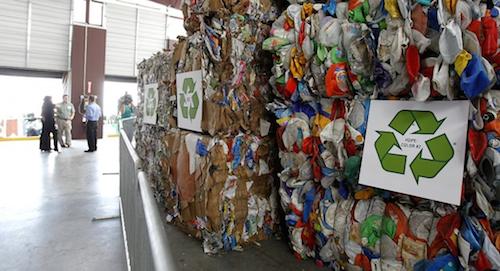There are two highly successful non-profit, community based e scrap enterprises operating in Oregon. They have stellar records of efficiency and integrity. They are rivers of wealth for the two cities in which they thrive.
The NextStep in Eugene, OR is a repair and distribution center founded in Lorraine Kerwood’s garage as MacRenewal. By 2002 NextStep was a formal non-profit corporation with many awards and accolades to follow. It now has 37 workers plus 12 volunteers/mentors comprised of regular folks as well as highly skilled technicians and trainers. The organization has trained over 15,000 participants with computer and social skills required for fulfilling jobs and careers.
The key to the operation is access to old but powerful machines generated by local government agencies, businesses, households and institutions and donated to the non-profit. “NextStep works with CEOs and janitors to keep up the flow of repairable inventory,” remarks Kerwood. “It is these relationships that are the mainstay of our program.”
Since its start up, NextStep has handled over 3.5 million pounds of e scrap. Repaired products are both sold and donated to low-income individuals, schools and community organizations, creating a closed loop of generators and customers.
Starting in 2000, Kerwood served as the Macintosh refurbisher for FreeGeek in Portland, traveling up the coast once each week to collect Macs, as FreeGeek’s initial focus was LINUX OS installs. When Mac hardware became available friendly enough to LINUX installs, FreeGeek took on Macs.
FreeGeek operates a similar non-profit entity from a city-block sized facility in Portland. Since 2000, FreeGeek also functions as a community based social enterprise. Donations of computers and related electronic products are dropped off at the main facility or satellite sites. In 2014, FreeGeek handled an estimated 700,000 pounds of e scrap. A staff of 38 workers and an average of 500 volunteers per month process the incoming products. Repaired products are made available for free through grant applications from non-profit organizations. Other repaired products are sold at the main thrift store and on line through EBay. The bulk of sales revenue derive from computers, printers, cables, audiovisual equipment, power strips and monitors. Steel and non-ferrous metals are sold to local scrap dealers. Free Geek must pay to dispose of plastics.
Free Geek, like NextStep, relies on word of mouth and on going relationships with local e scrap generators. Both NextStep and FreeGeek rarely get products through the state’s licensed processors/consolidators. These enterprises shred e scrap for recycling.
The OR e scrap law created in 2006 is a highly regulated e scrap Extended Producer Responsibility Program. Registered companies collect and process e scrap in association with Original Equipment Manufacturers. Since the EPR law has lead to the centralization of collection with limited access to repairable products, NextStep and FreeGeek probably would not exist if they had not emerged prior to the Oregon EPR law. They had years to develop their network of donor relationships with schools, government agencies, businesses and individuals; as well as a constituency/market for their end products.
Is there a lesson here for states contemplating e scrap EPR programs or states that have them and want to improve efficiency and value added to the local economy? There are excellent models of non-EPR e scrap programs that stimulate local enterprise development and localize value added. California’s advanced deposit system allows for redistribution of funds to collectors and processors, thus building the infrastructure for long term economic growth. (The California container deposit system also builds infrastructure for recycling and supports excellent training programs for young workers.)
What is needed is for EPR and take-back advocates to incorporate local reuse in their policies and programs. A debate on these issues is sorely needed as the shredding of valuable machines for the convenience of Brand Name OEM companies is too high a price to pay when we know what local reuse can accomplish in jobs, skill, environmental, social and economic pay back.
In my home town, Washington, DC, the value added opportunities can provide decent jobs, new small companies and help bring relief to the city’s underclass separated from the American dream by a deep digital divide. Yet, new legislation on e scrap gives control of this socially and economically invaluable resource to the Brand Name computer industry with no concern for keeping this resource local. What DC and all jurisdictions need is some quality control on EPR: How to use the fastest growing part of the waste stream to solve endemic social and economic problems. Recycling of e scrap is not enough! We need policy research to identify a fix for existing EPR e scrap laws and a model for maximum value from e scrap discards. EPR has a role surely. But what is it exactly?





